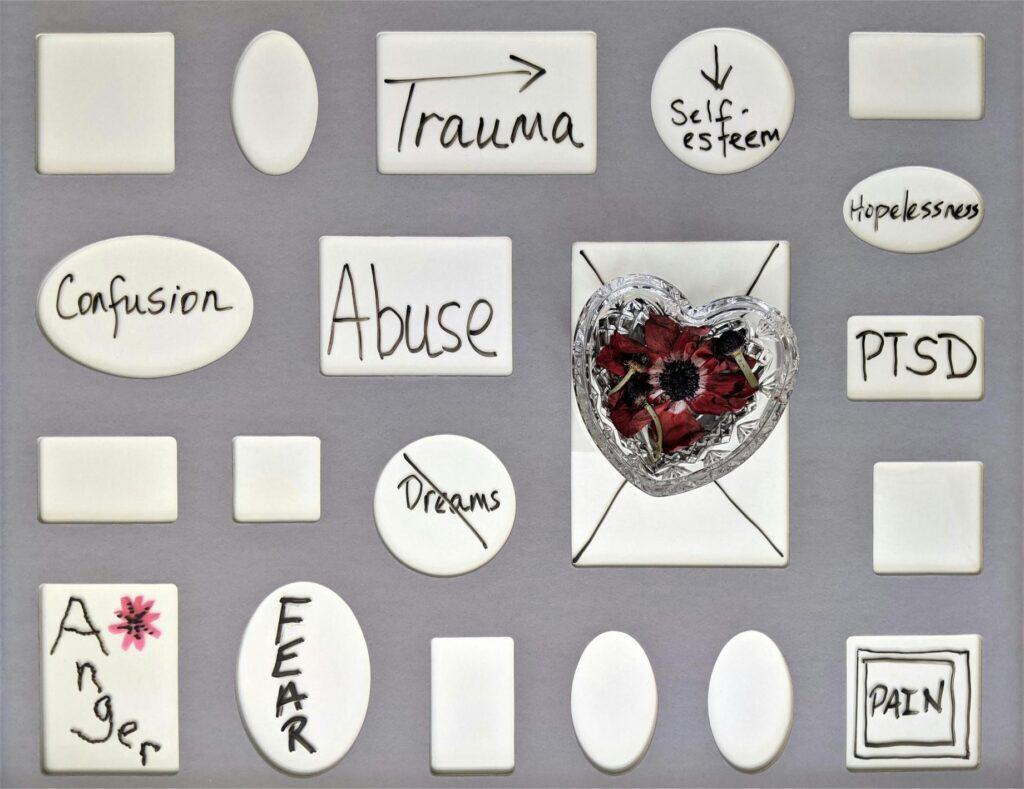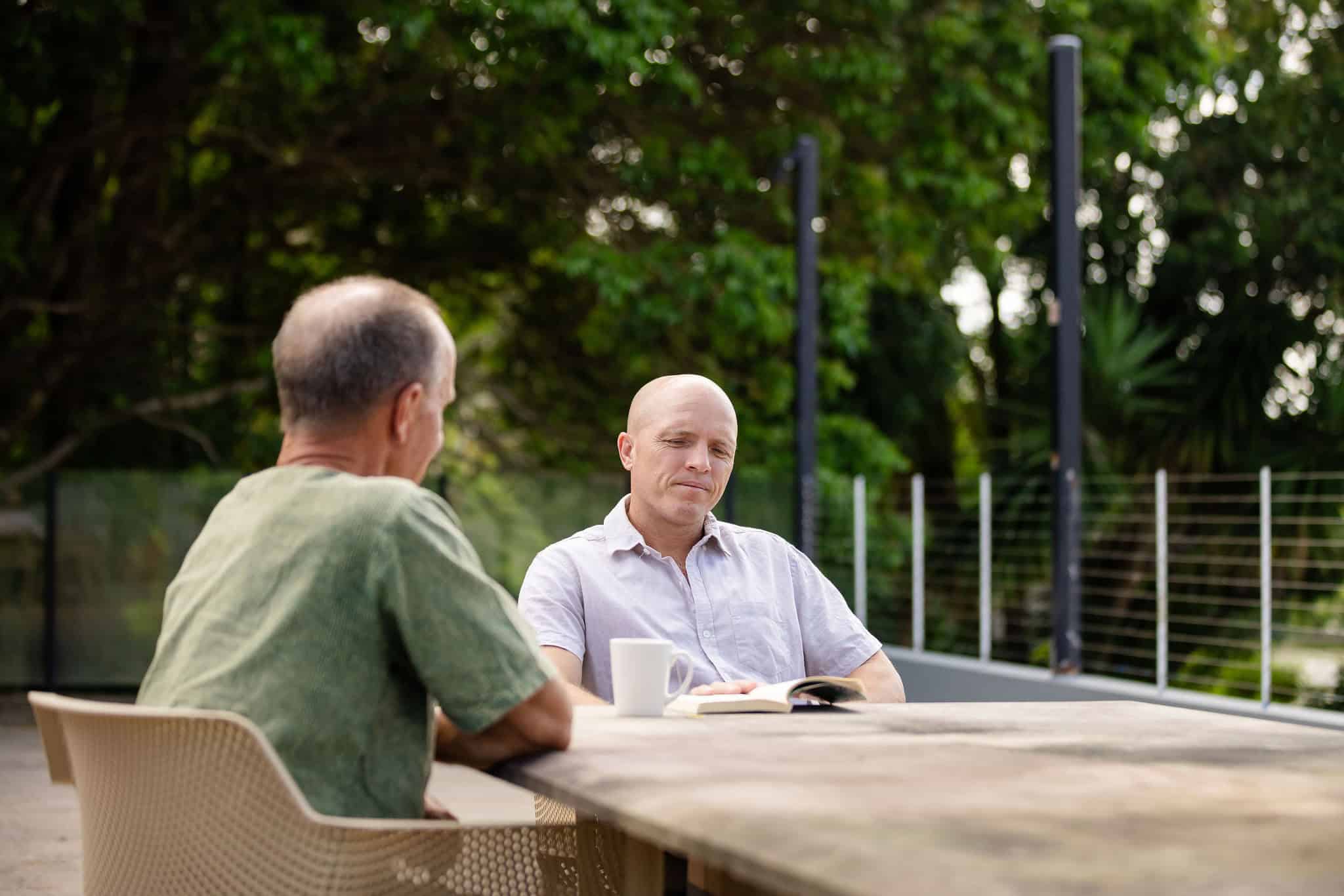Trauma dumping is a slang term used to describe the act of offloading intense emotional or traumatising information onto another person.
This “information overload” might be shared with a friend, family member, or in a work setting. Trauma dumping can be harmful because it places undue stress and emotional labor on the recipient without much consideration for their well-being.

Trauma Dumping vs Venting – What's The Difference?
The difference between trauma dumping and venting lies in the way emotional content is shared and the impact it has on the listener.
Use the flip cards below to discover the difference between venting and trauma dumping.
Venting
Trauma Dumping
Venting
Trauma Dumping
Venting
Trauma Dumping
Venting
Trauma Dumping
Venting
Trauma Dumping
Venting
Trauma Dumping
What Are The Effects Of Trauma Dumping? Is It Harmful?
Both the one listening and the trauma sharer are potentially harmed by trauma dumping. There are some significant effects on the relationship between the two people.
Effects of Trauma Dumping on the Listener
Being on the receiving end of trauma dumping can be a lot, especially if the listener is not emotionally prepared or equipped to handle such intense or distressing information.
Constantly being exposed to someone else’s trauma can lead to emotional burnout, where the listener feels exhausted and less capable of offering empathy.
Over time, the listener may avoid the trauma-dumping person altogether to protect their well-being.
Effects of Trauma Dumping on the Person Sharing
It doesn’t seem as obvious, but the “trauma-dumper” could also experience adverse effects from sharing this way.
Instead of working through their emotions constructively, trauma dumping is a way to seek immediate relief, preventing them from getting the help they truly need. They could delay a real chance to help themselves by habitually bringing up trauma in casual contexts.
Sometimes, someone mistakes their trauma-dumping for venting to alleviate stress. The person may continue to feel stuck without making progress toward recovery or feel like they rely on others for emotional support in an unfair way.
Is Trauma Dumping Manipulative?
Depending on the context, trauma dumping can feel manipulative, even if it’s not the intention.
Repeatedly sharing trauma to elicit specific reactions from others is not healthy. This behavior is manipulative if done intentionally to maintain control or influence over others.
However, in many cases, trauma dumping occurs when someone is unaware of how their sharing is affecting others. They need immediate relief for their unresolved trauma or validation and don’t mean harm.
How Does Trauma Dumping Affect Relationships?
Constant exposure to someone else’s unresolved trauma can lead to emotional burnout and potentially strained relationships.
The listener may start to feel that the relationship is one-sided, where they are constantly giving emotional support without receiving anything in return. They may choose space from the relationship to protect themselves from additional compassion fatigue.

How To Avoid Trauma Dumping on Others
Do you feel like you’ve trauma-dumped previously? No need to worry—avoiding trauma dumping is possible but takes practice. With some mindfulness of boundaries, you can intentionally share your life while maintaining healthy relationships.
By knowing when, how, and with whom you share your experiences, you can maintain healthy relationships while still getting the support you need.
Some ways to avoid trauma dumping:
- Ask for permission to share – Before sharing something heavy or potentially traumatic, ask the other person if they are in a good place to listen.
- Read the room – Consider whether the time, place, and context are appropriate for sharing. Avoid bringing up traumatic topics during casual gatherings.
- Allow for reciprocal sharing – Ensure that your conversations are balanced and allow the other person to share their thoughts.
- Self-reflection – Pay attention to how you feel after sharing your trauma. If you notice that you often feel relieved while the other person seems drained or overwhelmed, it might be a sign that you’re trauma dumping.
- Develop healthy coping mechanisms – Engage in activities that help you manage stress and process your emotions, such as journaling, exercise, meditation, or creative outlets.
- Consider therapy – Therapeutic programs help you process your trauma in a safe, structured environment where you can work through your emotions without the risk of overwhelming others.
How To Tell Someone To Stop Trauma Dumping?
Maybe you’ve been on the receiving end of trauma oversharing, and you aren’t sure how to handle this delicate conversation. Here are some ideas:
- Have this conversation in a private, calm setting where you can speak openly without distractions or interruptions. An ideal time is when both of you are not rushed or preoccupied.
- Start by acknowledging their pain or difficulty. You might say, “I can see that you’re going through a really tough time, and I care about you and want to support you.” Show that you understand where they’re coming from.
- Explain your emotional boundaries gently but clearly. For example, “I want to be there for you, but sometimes it’s hard to handle such intense and unexpected conversations.”

How To Best Deal With & Overcome Trauma
Overcoming trauma is a deeply personal process that involves multiple steps toward healing. Here are some strategies to help you on a path toward peace:
- Acknowledge that your trauma happened and understand that your reactions and feelings are valid.
- Surround yourself with supportive people you trust as you work toward healing.
- Limit contact with people who trigger negative emotions or stress.
- Join a support group where you can feel understood by others with similar experiences.
- Aim to get enough sleep to benefit your emotional health–7-9 hours a night is ideal.
- Express yourself through art, writing, or other creative outlets.
- Be patient with yourself throughout the healing process–it takes time.
Reconnect with Support and Understanding
It’s normal to feel like you can’t deal with trauma on your own, and that’s okay. Consider working with a therapist who specialises in trauma or trying a therapeutic program to receive the help you deserve.
Located in Queensland, Palladium Private is a private rehab facility providing evidence-based, multidisciplinary treatment for trauma-related concerns. If you or a loved one could benefit from a therapeutic program at Palladium, call anytime to speak to one of our Intake Consultants. It is important to know that you are not alone in your trauma healing journey. Whether for yourself or a loved one, we encourage you to contact our dedicated Intake team for a confidential discussion.



